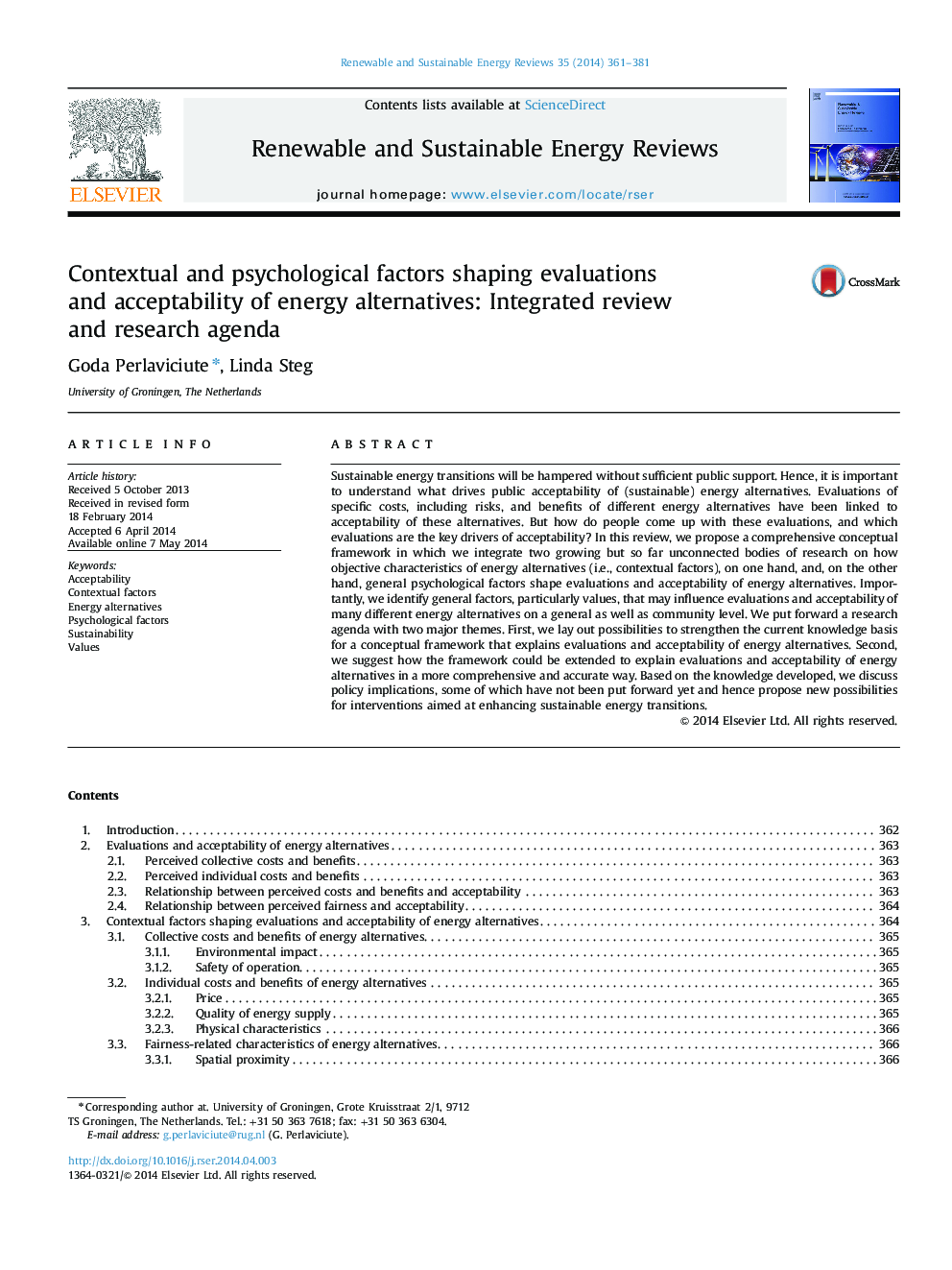| Article ID | Journal | Published Year | Pages | File Type |
|---|---|---|---|---|
| 1750393 | Renewable and Sustainable Energy Reviews | 2014 | 21 Pages |
Sustainable energy transitions will be hampered without sufficient public support. Hence, it is important to understand what drives public acceptability of (sustainable) energy alternatives. Evaluations of specific costs, including risks, and benefits of different energy alternatives have been linked to acceptability of these alternatives. But how do people come up with these evaluations, and which evaluations are the key drivers of acceptability? In this review, we propose a comprehensive conceptual framework in which we integrate two growing but so far unconnected bodies of research on how objective characteristics of energy alternatives (i.e., contextual factors), on one hand, and, on the other hand, general psychological factors shape evaluations and acceptability of energy alternatives. Importantly, we identify general factors, particularly values, that may influence evaluations and acceptability of many different energy alternatives on a general as well as community level. We put forward a research agenda with two major themes. First, we lay out possibilities to strengthen the current knowledge basis for a conceptual framework that explains evaluations and acceptability of energy alternatives. Second, we suggest how the framework could be extended to explain evaluations and acceptability of energy alternatives in a more comprehensive and accurate way. Based on the knowledge developed, we discuss policy implications, some of which have not been put forward yet and hence propose new possibilities for interventions aimed at enhancing sustainable energy transitions.
